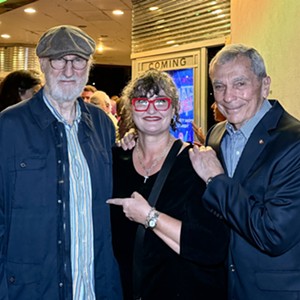The bicycle rack in front of 15 W. York St. is usually full, and one of the bikes often found there belongs to Creative Coast Executive Director Jake Hodesh. Even before he took the helm of the Creative Coast, Hodesh and his wife Miriam were thinking about how bicycles make Savannah better.
In 2009 they organized the redeSIGN Art Project, which invited local artists to create art from street signs that had been retired from service because they were “tagged,” rusted or otherwise deemed unfit for service. A portion of proceeds from work sold benefited the Savannah Bicycle Campaign.
The connection between bicycling and economic development is one that Hodesh has long recognized. Time spent behind the wheel on long car commutes results in lost productivity, health risks and reduced participation in civic life for employees and job creators alike. These things are not good for business.
The news last week that rental car giant Avis is purchasing Zipcar may mark a shift in the way we think about the business of transportation and alter our perceptions of driving, bicycling, walking, public transportation and city life in general.
Zipcar, for those who may not be aware of it, is a short–term car sharing system that allows members to reserve a car online, pick it up from a convenient neighborhood location, use it for a couple of hours and then return it. It’s yet to be profitable, but Avis’ involvement could change that.
Car sharing businesses allow people who don’t own cars to use a car temporarily without having to bum a ride from a friend or family member. Car sharing also allows people who own cars to just give them up.
Those who drive only occasionally can divest themselves of the costs of car ownership and instead walk, bicycle or take transit. On those rare occasions when they do need to drive (keep in mind 40 percent of urban trips are two miles or less), the car sharing service is there for them.
A certain degree of population density is required for car sharing to make sense and it seems best suited to places where the burdens of owning and storing a car outweigh the putative advantages of owning a car.
But could car sharing also catch on in places where the primary motivation is not escape from the hassles and expense of car ownership? What about communities like Savannah that are walkable and bikeable? Might active transportation options serve as a tipping point at which people decide to zap their cars and go with Zipcar instead? In such an environment, could car sharing further increase use of other transportation modes?
Zipcar polled its Baltimore customers in 2011, with pretty persuasive results. Zipcar members reported increases in walking, cycling and transit ridership. Other findings, which aren’t good news for the automobile industry, indicated that “18 percent of respondents have sold their vehicles since joining Zipcar, and 46 percent stated that they have avoided buying a car.”
This is good news, however, for automobile industry customers. People who cannot forgo car ownership will still reap rewards in the form of reduced congestion and less competition for parking spaces. Folks who don’t drive at all will enjoy cleaner air and a host of other benefits.
To make car sharing work, of course, we must have safe, accessible, convenient and comprehensive alternatives to driving. In this month’s issue of Georgia Trend magazine, Associate Publisher Ben Young writes that he detects “evidence that a rising number of Georgians do want options, and one in particular is gaining traction: bicycles.”
In his column, “More Biking, Less Driving,” Young surveys bicycle infrastructure projects around the state including Savannah’s Price Street and Washington Avenue bicycle lanes and the city’s ambitious bicycle rack deployment efforts. He suggests that as we plan for our state’s future, bikes should be part of “the mix.” This is excellent advice and I hope the “100 Most Influential Georgians” profiled in the same Georgia Trend issue read Young’s column and take it to heart
(At least one of the 100, Savannah Music Festival Executive Director Rob Gibson, already has — particularly when he is bicycling from venue to venue during the Festival).
Like Gibson, Hodesh has been way ahead of the pack on this. After he returns to Cincinnati to take a new job next month, we will need others to develop and implement transportation plans that will make our community healthier, more economically viable and better prepared to serve businesses, residents and visitors.
If they pedal hard enough, business leaders and government officials from around the state and here in Savannah can catch up with active transportation trends and steer us in the right direction. And add some needed zip to our economy.
John Bennett is vice chairman of the Savannah Bicycle Campaign.

























